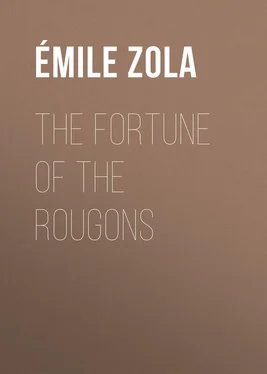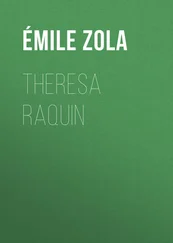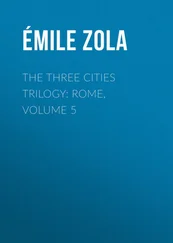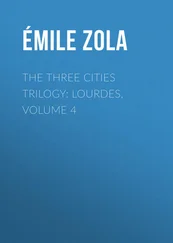Émile Zola - The Fortune of the Rougons
Здесь есть возможность читать онлайн «Émile Zola - The Fortune of the Rougons» — ознакомительный отрывок электронной книги совершенно бесплатно, а после прочтения отрывка купить полную версию. В некоторых случаях можно слушать аудио, скачать через торрент в формате fb2 и присутствует краткое содержание. Жанр: literature_19, foreign_antique, foreign_prose, на английском языке. Описание произведения, (предисловие) а так же отзывы посетителей доступны на портале библиотеки ЛибКат.
- Название:The Fortune of the Rougons
- Автор:
- Жанр:
- Год:неизвестен
- ISBN:нет данных
- Рейтинг книги:3 / 5. Голосов: 1
-
Избранное:Добавить в избранное
- Отзывы:
-
Ваша оценка:
- 60
- 1
- 2
- 3
- 4
- 5
The Fortune of the Rougons: краткое содержание, описание и аннотация
Предлагаем к чтению аннотацию, описание, краткое содержание или предисловие (зависит от того, что написал сам автор книги «The Fortune of the Rougons»). Если вы не нашли необходимую информацию о книге — напишите в комментариях, мы постараемся отыскать её.
The Fortune of the Rougons — читать онлайн ознакомительный отрывок
Ниже представлен текст книги, разбитый по страницам. Система сохранения места последней прочитанной страницы, позволяет с удобством читать онлайн бесплатно книгу «The Fortune of the Rougons», без необходимости каждый раз заново искать на чём Вы остановились. Поставьте закладку, и сможете в любой момент перейти на страницу, на которой закончили чтение.
Интервал:
Закладка:
One day, as she was bitterly reproaching her eldest son with the large amount of money expended on his education, he said to her with equal bitterness, “I will repay you later on if I can. But as you had no means, you should have brought us up to a trade. We are out of our element, we are suffering more than you.”
Felicite understood the wisdom of these words. From that time she ceased to accuse her children, and turned her anger against fate, which never wearied of striking her. She started her old complaints afresh, and bemoaned more and more the want of means which made her strand, as it were, in port. Whenever Rougon said to her, “Your sons are lazy fellows, they will eat up all we have,” she sourly replied, “Would to God I had more money to give them; if they do vegetate, poor fellows, it’s because they haven’t got a sou to bless themselves with.”
At the beginning of the year 1848, on the eve of the Revolution of February, the three young Rougons held very precarious positions at Plassans. They presented most curious and profoundly dissimilar characteristics, though they came of the same stock. They were in reality superior to their parents. The race of the Rougons was destined to become refined through its female side. Adelaide had made Pierre a man of moderate enterprise, disposed to low ambitions; Felicite had inspired her sons with a higher intelligence, with a capacity for greater vices and greater virtues.
At the period now referred to the eldest, Eugene, was nearly forty years old. He was a man of middle height, slightly bald, and already disposed to obesity. He had his father’s face, a long face with broad features; beneath his skin one could divine the fat to which were due the flabby roundness of his features, and his yellowish, waxy complexion. Though his massive square head still recalled the peasant, his physiognomy was transfigured, lit up from within as it were, when his drooping eyelids were raised and his eyes awoke to life. In the son’s case, the father’s ponderousness had turned to gravity. This big fellow, Eugene, usually preserved a heavy somnolent demeanour. At the same time, certain of his heavy, languid movements suggested those of a giant stretching his limbs pending the time for action. By one of those alleged freaks of nature, of which, however, science is now commencing to discover the laws, if physical resemblance to Pierre was perfect in Eugene, Felicite on her side seemed to have furnished him with his brains. He offered an instance of certain moral and intellectual qualities of maternal origin being embedded in the coarse flesh he had derived from his father. He cherished lofty ambitions, possessed domineering instincts, and showed singular contempt for trifling expedients and petty fortunes.
He was a proof that Plassans was perhaps not mistaken in suspecting that Felicite had some blue blood in her veins. The passion for indulgence, which became formidably developed in the Rougons, and was, in fact, the family characteristic, attained in his case its highest pitch; he longed for self-gratification, but in the form of mental enjoyment such as would gratify his burning desire for domination. A man such as this was never intended to succeed in a provincial town. He vegetated there for fifteen years, his eyes turned towards Paris, watching his opportunities. On his return home he had entered his name on the rolls, in order to be independent of his parents. After that he pleaded from time to time, earning a bare livelihood, without appearing to rise above average mediocrity. At Plassans his voice was considered thick, his movements heavy. He generally wandered from the question at issue, rambled, as the wiseacres expressed it. On one occasion particularly, when he was pleading in a case for damages, he so forgot himself as to stray into a political disquisition, to such a point that the presiding judge interfered, whereupon he immediately sat down with a strange smile. His client was condemned to pay a considerable sum of money, a circumstance which did not, however, seem to cause Eugene the least regret for his irrelevant digression. He appeared to regard his speeches as mere exercises which would be of use to him later on. It was this that puzzled and disheartened Felicite. She would have liked to see her son dictating the law to the Civil Court of Plassans. At last she came to entertain a very unfavourable opinion of her first-born. To her mind this lazy fellow would never be the one to shed any lustre on the family. Pierre, on the contrary, felt absolute confidence in him, not that he had more intuition than his wife, but because external appearances sufficed him, and he flattered himself by believing in the genius of a son who was his living image. A month prior to the Revolution of February, 1848, Eugene became restless; some special inspiration made him anticipate the crisis. From that time forward he seemed to feel out of his element at Plassans. He would wander about the streets like a distressed soul. At last he formed a sudden resolution, and left for Paris, with scarcely five hundred francs in his pocket.
Aristide, the youngest son, was, so to speak, diametrically opposed to Eugene. He had his mother’s face, and a covetousness and slyness of character prone to trivial intrigues, in which his father’s instincts predominated. Nature has need of symmetry. Short, with a pitiful countenance suggesting the knob of a stick carved into a Punch’s head, Aristide ferretted and fumbled everywhere, without any scruples, eager only to gratify himself. He loved money as his eldest brother loved power. While Eugene dreamed of bending a people to his will, and intoxicated himself with visions of future omnipotence, the other fancied himself ten times a millionaire, installed in a princely mansion, eating and drinking to his heart’s content, and enjoying life to the fullest possible extent. Above all things, he longed to make a rapid fortune. When he was building his castles in the air, they would rise in his mind as if by magic; he would become possessed of tons of gold in one night. These visions agreed with his indolence, as he never troubled himself about the means, considering those the best which were the most expeditious. In his case the race of the Rougons, of those coarse, greedy peasants with brutish appetites, had matured too rapidly; every desire for material indulgence was found in him, augmented threefold by hasty education, and rendered the more insatiable and dangerous by the deliberate way in which the young man had come to regard their realisation as his set purpose. In spite of her keen feminine intuition, Felicite preferred this son; she did not perceive the greater affinity between herself and Eugene; she excused the follies and indolence of her youngest son under the pretext that he would some day be the superior genius of the family, and that such a man was entitled to live a disorderly life until his intellectual strength should be revealed.
Aristide subjected her indulgence to a rude test. In Paris he led a low, idle life; he was one of those students who enter their names at the taverns of the Quartier Latin. He did not remain there, however, more than two years; his father, growing apprehensive, and seeing that he had not yet passed a single examination, kept him at Plassans and spoke of finding a wife for him, hoping that domestic responsibility would make him more steady. Aristide let himself be married. He had no very clear idea of his own ambitions at this time; provincial life did not displease him; he was battening in his little town – eating, sleeping, and sauntering about. Felicite pleaded his cause so earnestly that Pierre consented to board and lodge the newly-married couple, on condition that the young man should turn his attention to the business. From that time, however, Aristide led a life of ease and idleness. He spent his days and the best part of his nights at the club, again and again slipping out of his father’s office like a schoolboy to go and gamble away the few louis that his mother gave him clandestinely.
Читать дальшеИнтервал:
Закладка:
Похожие книги на «The Fortune of the Rougons»
Представляем Вашему вниманию похожие книги на «The Fortune of the Rougons» списком для выбора. Мы отобрали схожую по названию и смыслу литературу в надежде предоставить читателям больше вариантов отыскать новые, интересные, ещё непрочитанные произведения.
Обсуждение, отзывы о книге «The Fortune of the Rougons» и просто собственные мнения читателей. Оставьте ваши комментарии, напишите, что Вы думаете о произведении, его смысле или главных героях. Укажите что конкретно понравилось, а что нет, и почему Вы так считаете.












